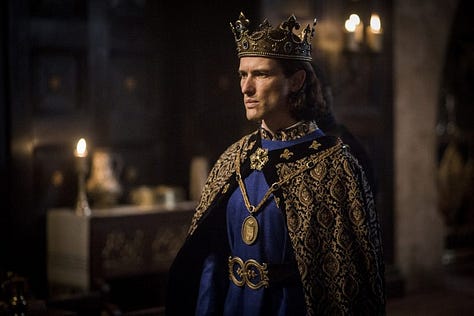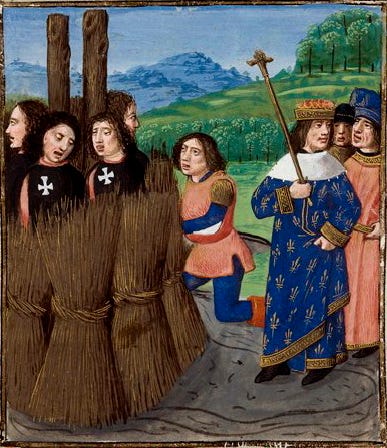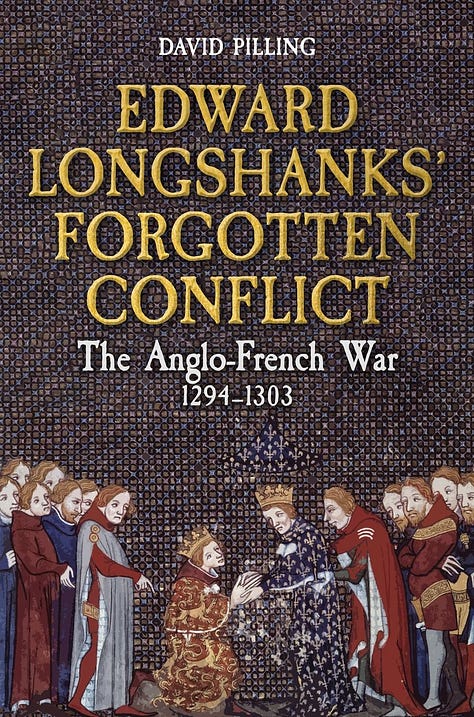Next in my series of mini-biographies is Philip IV of France, known as le Bel or the Fair. I'm writing these to promote my new book (he said bluntly...)
Below is a slightly revised version of a piece I wrote on Philip a few months ago.
PHILIP IV (reigned 1285-1314)
When Philip came to the throne in 1285, at just seventeen, the prestige of France lay in ruins. His father, Philip the Bold, had triggered the so-called Aragonese Crusade. After a calamitous invasion of Aragon, his retreating army was cut to bits at the Battle of the Col de Panissars. Philip himself died of dysentery a few days later, 5 October 1285.
His son inherited a lost war and an empty treasury. Everything he did in his reign, fair or foul, should be seen in this context. Philip's job, as he saw it, was to restore the glory of France. More than that, he dreamed of extending her borders and establishing a mighty Capetian empire.
Philip constructed a new image of monarchy. The king of France was now a remote, godlike entity, screened by his advisers. For this reason Philip's critics in France called him the Owl and the Statue – he sat on his throne, unblinking and inscrutable, betraying absolutely nothing. The obvious comparison in England would be the last years of Henry VII, when the first Tudor king shut himself away from his subjects.
His policies were ruthless and authoritarian. To increase the royal might, all means were good. Philip presided over spectacular trials of his enemies, accused of sorcery, heresy and crimes against nature. Many were burnt at the stake. He launched cynical wars in Flanders and Gascony and used the Scots as useful leverage against the English, supporting or abandoning them, as it suited his purpose.
Philip's big problem was money. When his own revenues ran dry, he took the extraordinary step of debasing the French currency. At first this raked in a ton of cash, but within five years the economy had fallen off a cliff. The value of French sterling plummeted by over 60%, and Philip was forced to order the mass confiscation of silver, to be melted into coin.
There were food riots all over France, resembling the later Revolution, and Philip himself was almost murdered by the Paris mob. His notorious destruction of the Knights Templar was probably driven by money woes, although his precise motives are unclear. Possibly he was alarmed by the wealth and power of the Templars in France. Whatever the case, they were arraigned on false charges, arrested, tortured, burnt.
Philip also engaged in a damaging war of words with the papacy, headed by the eccentric Boniface VIII. After exchanging a long series of insults, Philip sent his agents to assault the pope on the steps of his own palace – the famous 'Anagni slap'. Boniface was then held in French custody for three days, probably tortured, and died shortly afterwards.
Philip's relations with Edward I were defined by Capetian expansionism. Already overlord of Gascony, Philip decided to conquer the duchy outright, just as Edward had conquered Wales. The war that followed achieved nothing, except to drain the resources of both kingdoms. Elsewhere, Philip successfully absorbed Burgundy into France, and eventually (despite the famous French defeat at Courtrai) imposed his will on the Flemings.
Of all medieval kings, Philip is probably the most difficult to understand in terms of personality. How many of his policies were actually his, or driven by his advisers? The man himself, on his deathbed, insisted that everything had been done according to his will. We can only take his word for it.
(Attached is an image of Ed Stoppard as Philip in Knightfall)





